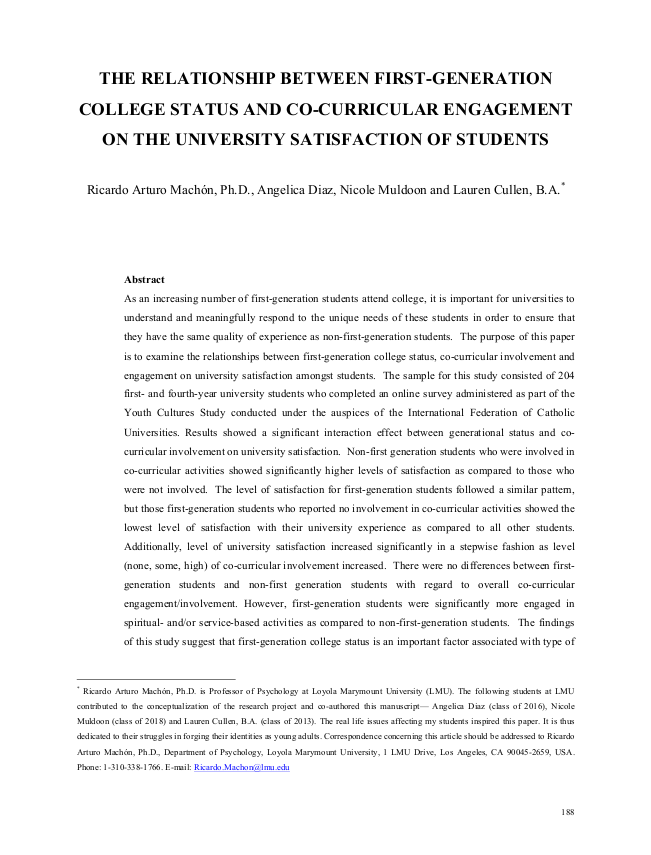The relationship between first-generation college status and co-curricular engagement on the University satisfaction of Students
Main Article Content
Abstract
As an increasing number of first-generation students attend college, it is important for universities to understand and meaningfully respond to the unique needs of these students in order to ensure that they have the same quality of experience as non-first-generation students. The purpose of this paper is to examine the relationships between first-generation college status, co-curricular involvement and engagement on university satisfaction amongst students. The sample for this study consisted of 204 first- and fourth-year university students who completed an online survey administered as part of the Youth Cultures Study conducted under the auspices of the International Federation of Catholic Universities. Results showed a significant interaction effect between generational status and co-curricular involvement on university satisfaction. Non-first generation students who were involved in co-curricular activities showed significantly higher levels of satisfaction as compared to those who were not involved. The level of satisfaction for first-generation students followed a similar pattern, but those first-generation students who reported no involvement in co-curricular activities showed the lowest level of satisfaction with their university experience as compared to all other students. Additionally, level of university satisfaction increased significantly in a stepwise fashion as level (none, some, high) of co-curricular involvement increased. There were no differences between first-generation students and non-first generation students with regard to overall co-curricular engagement/involvement. However, first-generation students were significantly more engaged in spiritual- and/or service-based activities as compared to non-first-generation students. The findings of this study suggest that first-generation college status is an important factor associated with type of co-curricular involvement and university satisfaction. Implications for further research on special programs for first-generation students are discussed.

